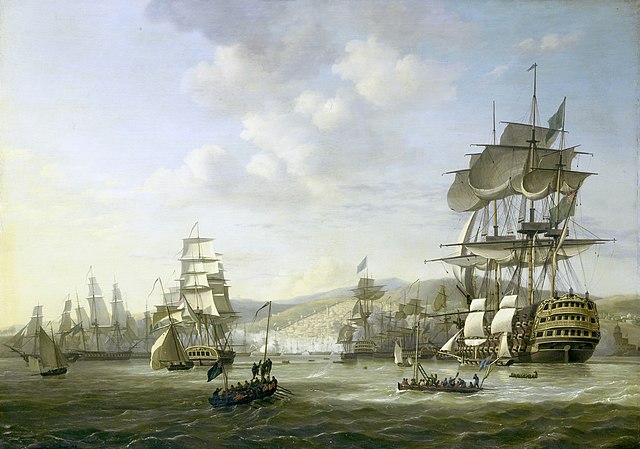The Republic of Pisa was an independent state existing from the 11th to the 15th century and centered on the Tuscan city of Pisa. It rose to become an economic powerhouse, a commercial center whose merchants dominated Mediterranean and Italian trade for a century, before being surpassed and superseded by the Republic of Genoa.
Dagobert sailing in a ship flying the cross of St George
The Cathedral of Pisa was built during the Republic's heyday (11th and 12th centuries) and financed by the spoils and loot from the Mahdia campaign of 1087
Pisan watchtower on Elba built by the Republic as a defence against Saracen pirates
The flag of Pisa (Pisan cross) flying on the Leaning Tower of Pisa (built 12th–14th century)
The Mediterranean Sea is a sea connected to the Atlantic Ocean, surrounded by the Mediterranean Basin and almost completely enclosed by land: on the north by Southern Europe and Anatolia, on the south by North Africa, and on the east by the Levant in West Asia. The Mediterranean has played a central role in the history of Western civilization. Geological evidence indicates that around 5.9 million years ago the Mediterranean was cut off from the Atlantic and was partly or completely desiccated over a period of some 600,000 years during the Messinian salinity crisis before being refilled by the Zanclean flood about 5.3 million years ago.
With its highly indented coastline and large number of islands, Greece has the longest Mediterranean coastline.
Greek (red) and Phoenician (yellow) colonies in antiquity c. the 6th century BC
The Battle of Lepanto, 1571, ended in victory for the European Holy League against the Ottoman Turks.
The bombardment of Algiers by the Anglo-Dutch fleet in support of an ultimatum to release European slaves, August 1816








